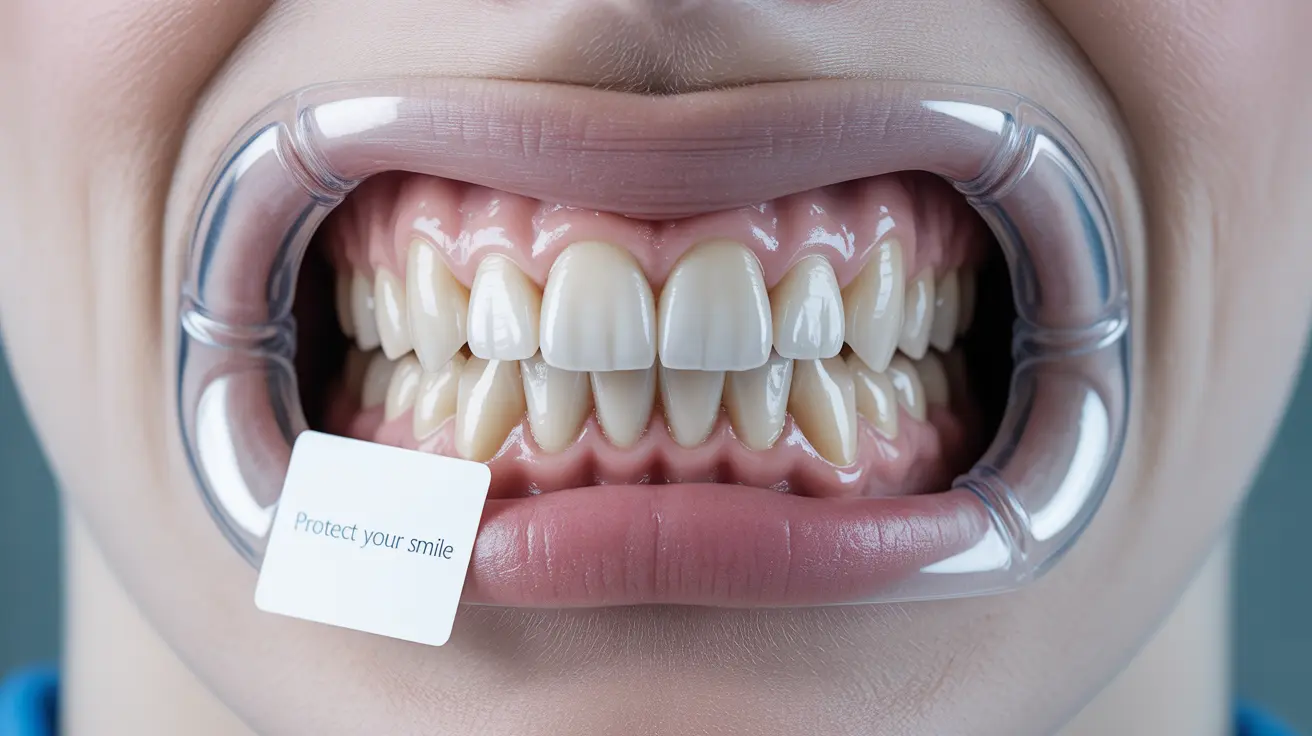Waking up with a sore or injured tongue can be both painful and concerning, especially when you realize you've been biting your tongue during sleep. This common but troublesome condition can significantly impact your sleep quality and overall well-being. Understanding the causes and available treatments can help you address this issue effectively.
While occasional tongue biting during sleep might be harmless, frequent occurrences could signal underlying health conditions that require attention. Let's explore the various aspects of this sleep-related issue and discover ways to prevent it from happening.
Understanding Sleep-Related Tongue Biting
Tongue biting during sleep often occurs involuntarily and can be associated with various underlying conditions. The tongue, being a highly mobile muscle, can sometimes get caught between the teeth during sleep, leading to painful injuries and disrupted rest.
Common Triggers and Risk Factors
Several factors can increase your likelihood of biting your tongue while sleeping:
- Misaligned teeth or jaw
- Nighttime seizures
- Sleep disorders
- Medication side effects
- Stress and anxiety
- Poor sleep positioning
Medical Conditions Associated with Nighttime Tongue Biting
Sleep Bruxism
Sleep bruxism, characterized by teeth grinding and jaw clenching during sleep, can significantly increase the risk of tongue biting. The unconscious grinding motion can trap the tongue between the teeth, leading to injuries.
Sleep Apnea Connection
People with sleep apnea may experience tongue biting as their bodies struggle to maintain open airways during sleep. The irregular breathing patterns can cause involuntary mouth and tongue movements, increasing the risk of injury.
Prevention and Treatment Options
Protective Devices
Several protective devices can help prevent tongue biting during sleep:
- Custom-fitted mouth guards
- Night guards
- Dental appliances
- Tongue retaining devices
Lifestyle Modifications
Making certain lifestyle changes can reduce the frequency of tongue biting:
- Stress management techniques
- Regular sleep schedule
- Proper sleep positioning
- Avoiding caffeine before bedtime
- Maintaining good oral hygiene
When to Consult a Healthcare Provider
Seek medical attention if you experience:
- Frequent or severe tongue injuries
- Excessive bleeding
- Difficulty eating or speaking
- Signs of infection
- Concurrent symptoms like headaches or jaw pain
- Regular sleep disruptions
Frequently Asked Questions
What are the common causes of biting your tongue during sleep?
Common causes include sleep bruxism, sleep apnea, seizures, misaligned teeth, stress-related jaw clenching, and certain medications that affect muscle control during sleep. Some people may also experience tongue biting due to poor sleep positioning or underlying neurological conditions.
How can sleep bruxism or sleep apnea lead to tongue biting at night?
Sleep bruxism causes unconscious teeth grinding and jaw clenching, which can trap and injure the tongue. Sleep apnea can cause irregular breathing patterns and involuntary mouth movements as the body struggles to maintain proper airflow, potentially leading to tongue biting incidents.
What treatments or devices can help prevent tongue biting while sleeping?
Effective treatments include custom-fitted mouth guards, night guards, and dental appliances designed to protect the tongue and teeth. Additionally, treating underlying conditions like sleep apnea or bruxism through CPAP therapy or stress management can help reduce tongue biting incidents.
When should I see a doctor about frequent or severe tongue biting during sleep?
Consult a healthcare provider if you experience frequent or severe tongue injuries, excessive bleeding, difficulty eating or speaking, signs of infection, or if tongue biting significantly disrupts your sleep. These symptoms may indicate an underlying condition requiring medical attention.
Can stress or anxiety make tongue biting worse, and how can it be managed?
Yes, stress and anxiety can increase muscle tension and jaw clenching, leading to more frequent tongue biting episodes. Management strategies include relaxation techniques, stress reduction practices, regular exercise, and potentially cognitive behavioral therapy. Some people may also benefit from anti-anxiety medications prescribed by their healthcare provider.




